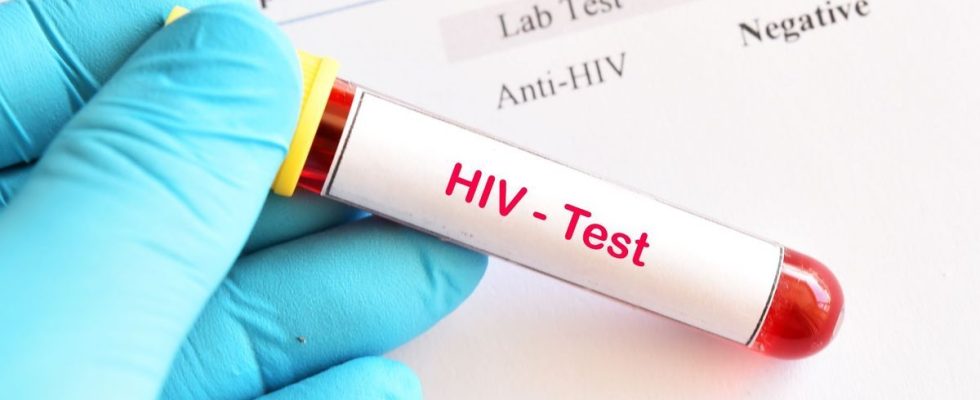Published on
Updated
Reading 2 mins.
In Geneva, Switzerland, a man has been declared in remission from HIV following a bone marrow transplant to treat leukemia. Indeed, twenty months after stopping his antiretroviral treatment, the virus remains undetectable in his body to this day. The explanations of Pr Jean Paul Viard, head of the immuno-infectiology service at the Hôtel-Dieu, in Paris.
There is already talk of the “Geneva patient”, about this man declared to be in remission from HIV, in reference to the five patients declared to be cured of HIV around the world, more precisely in Berlin, London, Düsseldorf, New York and City of Hope. However, this patient represents a special case, here is why.
A bone marrow transplant, not carrying the CCR5 delta 32 genetic mutation
The five patients declared as probably cured of HIV were transplanted with bone marrow from a donor carrying a rare genetic mutation called CCR5 delta 32, known to make cells naturally resistant to the virus.
The particularity for this patient from Geneva, the transplant did not carry this rare mutation. However, twenty months after stopping his treatment, HIV remains undetectable in his body. This particular case will be presented during the 26e congress of the International AIDS Society which will be held from July 24 in Brisbane, Australia.
A patient infected in the early 1990s
This patient from Geneva was infected with the virus in the early 1990s and has been living with antiretroviral treatment ever since. Affected by leukemia in 2018, he underwent a stem cell transplant. These new cells replaced those of the patient after a month, having the effect of reducing the amount of virus in his body. The doctors then decided to gradually reduce his antiretroviral treatment until he removed it in November 2021. Since then, the analyzes carried out have detected neither viral particles, nor activatable viral reservoir, nor increase in immune responses against the virus in the patient’s body.
“This result is surprising” says Professor Jean-Paul Viard, head of the immuno-infectiology department at the Hôtel-Dieu in Paris. “However, we must remain cautious, because many cases have been published and for which, in the end, it was a failure. For this patient, it is not yet known why it seems to work, at this time. Is it due to genetic peculiarities? Is it related to the fact that the patient was treated quickly after his primary infection, which did not allow the amount of virus to grow in his body and create a viral reservoir? These are just guesses.” adds the specialist.
“Bone marrow transplant cannot be the treatment for HIV”
If the reasons for this remission are not yet entirely clear, one thing is certain: bone marrow transplantation cannot be considered as a potential treatment for HIV. “These patients benefit from bone marrow transplantation because of the serious pathologies that affect them. But it is certain that for the millions of people affected by HIV, it is better to live with a tablet to be taken every day than to suffer the consequences of such a heavy therapy as bone marrow transplantation” concludes Professor Viard.
